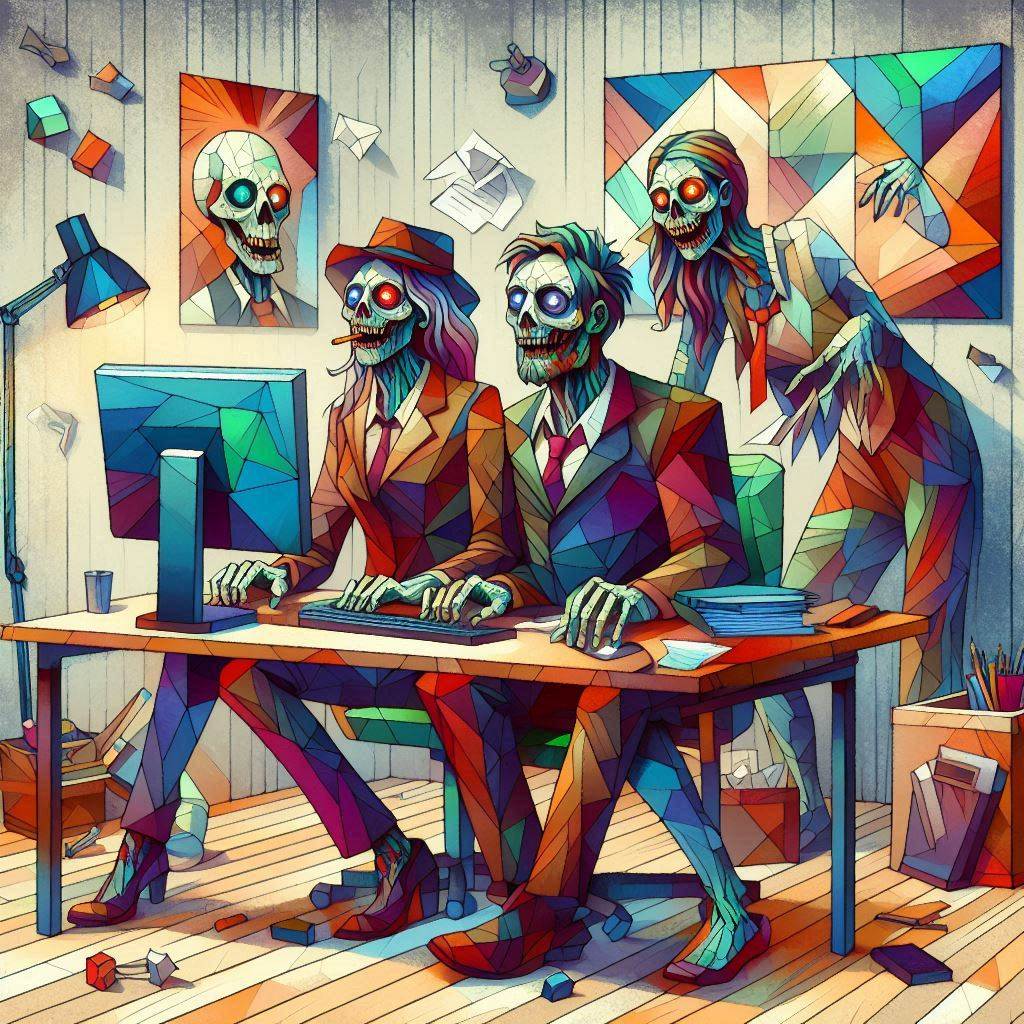The internet, once a vibrant frontier teeming with human creativity, seems to be succumbing to an infestation. No, not the clickbait variety, but a more insidious one: the “Zombie Web.” Here, content is increasingly generated by AI bots, churning out vast quantities of text that might appear human-written, but lacks the spark of genuine human expression.
This rise of AI-generated content presents a fascinating, and slightly unsettling, paradox. On the one hand, it promises efficiency and scalability. News outlets can churn out real-time reports, businesses can generate personalized marketing copy, and even search engines can curate results with a newfound level of nuance. However, the potential downsides are equally significant.
The biggest concern lies in the erosion of trust. When a seemingly human voice is actually an algorithm, discerning truth from fiction becomes a formidable task. Fake news, already a major issue, could become exponentially worse with AI capable of mimicking credible writing styles. Additionally, the Zombie Web risks homogenization. AI content tends to be safe, predictable, and optimized for search engines, sacrificing genuine creativity and diverse perspectives in the process.
So, how does one identify a zombie on the web? Here are some warning signs:
- Uncanny Fluency: The writing might be grammatically perfect but lack a natural flow or a unique voice. It might be repetitive or overly generic.
- Shallow Depth: The content might skim the surface of a topic, lacking insightful analysis or original arguments.
- Focus on Keywords: The writing feels stuffed with keywords relevant to search engine optimization, making it sound robotic and unnatural.
But the future isn’t all doom and gloom. AI content generation can be a powerful tool when used responsibly. Here’s how we can navigate the rise of the Zombie Web:
- Transparency is Key: Websites and content creators should clearly disclose when AI is used to generate content. This builds trust and allows readers to make informed decisions.
- Human Oversight Remains Essential: AI can be an excellent assistant, but human editors are still crucial for fact-checking, adding depth, and injecting the irreplaceable human touch.
- Focus on Quality over Quantity: Let’s move away from the content-churning mentality and prioritize well-researched, thought-provoking content.
The Zombie Web doesn’t have to spell the demise of human creativity. Instead, we can view it as an opportunity to redefine the role of human writers. With AI handling the mundane tasks, humans can focus on what they do best: crafting stories that resonate, sparking thought-provoking discussions, and weaving the magic of genuine human expression into the digital fabric.
The future of the web lies in a collaborative dance between humans and AI. We can leverage the efficiency of algorithms while safeguarding the irreplaceable spark of human creativity. Only then can we ensure the web remains a vibrant, diverse, and trustworthy space.
#curiousminds
